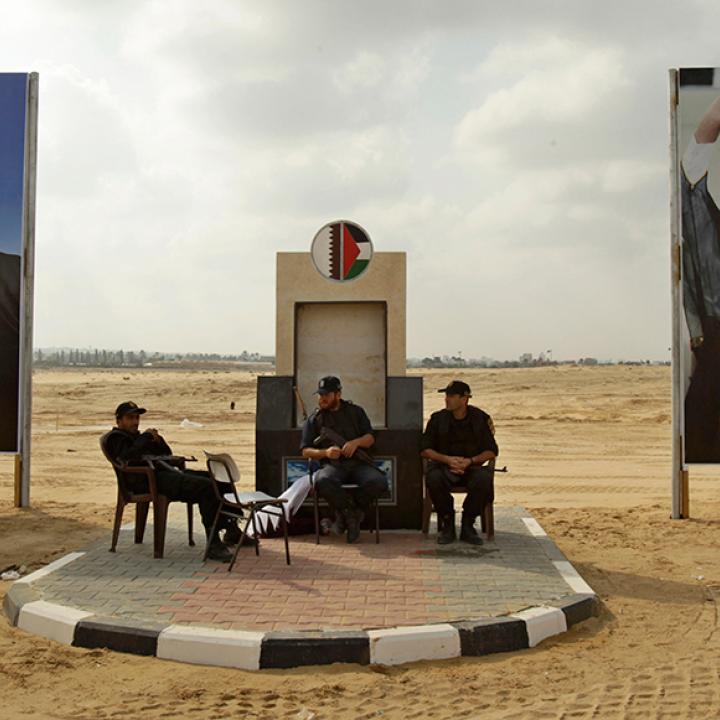
- Policy Analysis
- Interviews and Presentations
Emir's Visit to Gaza Highlights Qatari Adventurism

The emir of Qatar, Sheik Hamad bin Khalifa al-Thani, recently became the first head of state to visit Gaza since it came under the control of Hamas in 2007. In an email interview, Simon Henderson, director of the Gulf and Energy Policy Program at The Washington Institute, discussed the Qatari leader's visit.
WPR: What was the emir of Qatar hoping to achieve by the visit?
Simon Henderson: It is not clear. Officially, Sheik Hamad was showing support for the Palestinians in the Gaza Strip. Unofficially, his principal motives seem to have been to project Qatar's growing diplomatic profile. In particular, he was displaying backing for an Islamist regime, one that has been largely isolated. It will take some time before it is possible to make a judgment of the impact of the visit.
WPR: How does the trip affect Qatar's relations with other powers in the region and with the U.S.?
Henderson: Sheik Hamad's visit will have upset the United States, which is trying to isolate the Hamas administration in Gaza because of its intransigence to peace with Israel. It will also have irritated Saudi Arabia, which tends to back the Palestinian Authority, led by President Mahmoud Abbas in Ramallah on the West Bank. Both the U.S. and Saudi Arabia have experienced such Qatari diplomatic adventurism in the past and seem to reluctantly accept it as part of their bilateral relations with Qatar. Both Washington and Riyadh know that Doha's principal foreign policy anxiety is Iran. This means that Qatar will usually be careful not to risk jeopardizing its ties with the U.S. and Saudi Arabia, to which it looks for support on the Iran issue. Israel will also have been disappointed by the Qatari move because it boosted Hamas. But, perhaps ironically, the visit only underlines the mercurial nature of Qatari foreign policy. When Sheik Hamad came to power in 1995, he initially sought to open relations with Israel as a way of raising his own profile with the United States.
WPR: What will the visit mean for relations between Hamas and Fatah?
Henderson: The visit will have revived the tension between Hamas and Fatah. Hamas will be pleased that its isolation has been broken and will be hoping for further foreign visitors to confirm this trend. Sheik Hamad's gesture of support for the Palestinians in Gaza may well undermine the attempt by Abbas to raise the diplomatic status of the Palestinians via the United Nations. In terms of Palestinian domestic politics, Sheikh Hamad's visit was a setback for reconciliation.
World Politics Review



